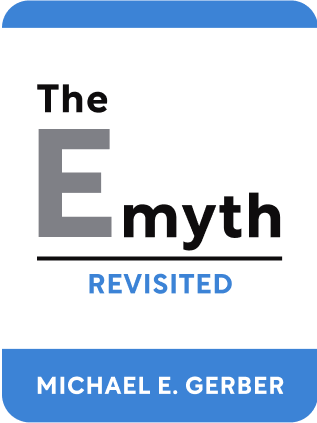

This article is an excerpt from the Shortform book guide to "The E-Myth Revisited" by Michael E. Gerber. Shortform has the world's best summaries and analyses of books you should be reading.
Like this article? Sign up for a free trial here .
What start-up roles are necessary for your business to grow? What mindset should a small business leader adopt from the start?
In The E-Myth Revisited, Michael E. Gerber argues that a small business owner should assume three roles or mindsets: entrepreneur, manager, and technician. He describes the key characteristics of each start-up role and discusses how they must balance—rather than compete with—each other.
Read more to learn the three crucial start-up roles for your business.
A Small Business Owner’s Three Start-up Roles
The problem is that you’ve focused too narrowly on one role. A small business owner needs to cultivate and balance three roles or mindsets, all of which are necessary for running a business. The first is the technician mindset, which, as noted, often prompts you to start a business but by itself is insufficient to maintain a business. The other roles are those of the entrepreneur and the manager.
Two of them — technician and manager — may be delegated as the business grows, but in the beginning, the owner must apply and balance all three. The three roles or mindsets may compete to dominate the business owner’s actions, the way your desire to indulge in eating a favorite snack may compete with your desire to stay trim and fit.
Here are the key characteristics of each role. They can be both strengths and, if taken too far, drawbacks.
Startup Role #1: Entrepreneur
The entrepreneur role provides the vision, creativity, and energy that drive the business. The entrepreneur is always thinking of the future. He likes to consider what-if scenarios, envisioning strategies, new ways of doing things, and ways to create or reach new markets. The entrepreneur’s desire for change can frustrate those wanting stability or a consistent direction. He may come to view such people as obstacles who need to be pushed or pulled along. The entrepreneur also has a strong need for control.
Startup Role #2: Manager
The manager is a pragmatist who uses planning and systems to create order and predictability. She strives to maintain the status quo. Her mindset conflicts with the entrepreneur’s in that she sees problems rather than opportunities and her pragmatism counters the entrepreneur’s desire for innovation.
Startup Role #3: Technician
The technician is an individualist and a doer. He prefers to do things himself to ensure that they’re done right. With his focus on getting things done, he lives in the present. He likes to be in control of his workflow and to work on one thing at a time. He distrusts managers because they push for more than is reasonable (more than can be done right) and they get in the way. This mindset conflicts with that of the entrepreneur, who keeps interrupting with changes, and with the mindset of the manager, who tries to impose a system.
A small business needs all three mindsets working in harmony, and an owner possesses all three to varying degrees. Typically, however, a small business owner is 70 percent technician, 20 percent manager, and 10 percent entrepreneur. Running a business with mostly a technician mindset is a mistake for reasons that are explained in the next chapter.
Be aware of which mindset dominates your thinking and which hat you spend most of your time wearing. Your business mirrors your strongest tendency. But to succeed, you need to master all three.
Now you have an understanding of the startup roles that can give your business the best chance to succeed.

———End of Preview———
Like what you just read? Read the rest of the world's best book summary and analysis of Michael E. Gerber's "The E-Myth Revisited" at Shortform .
Here's what you'll find in our full The E-Myth Revisited summary :
- Why so many new business owners fail
- Why how you produce something is more important than what you produce
- The 7 components that you as an owner must work through






